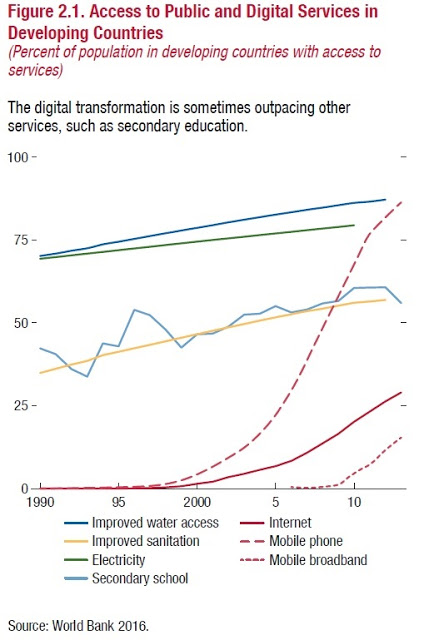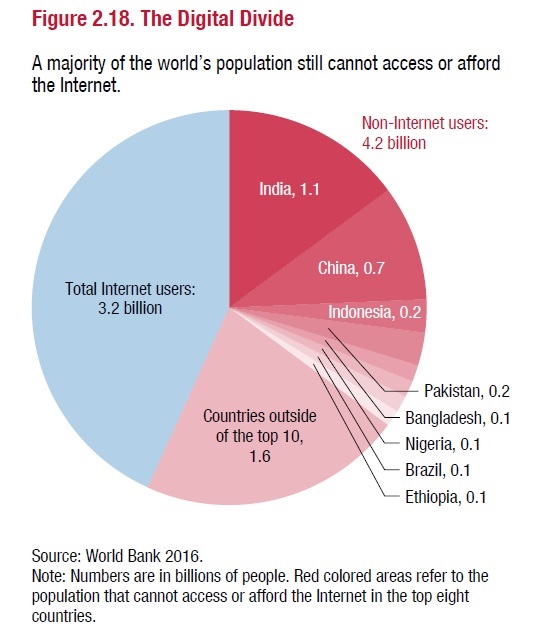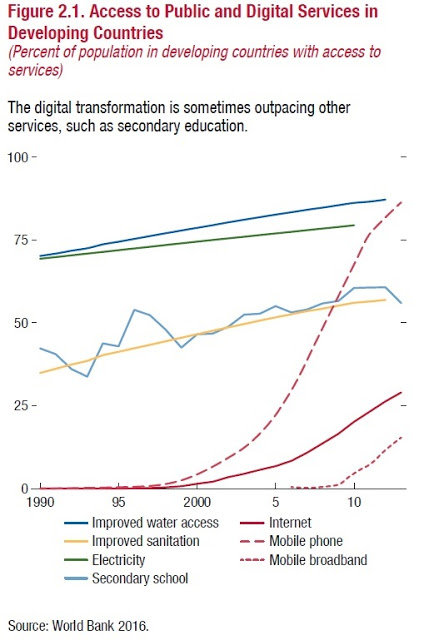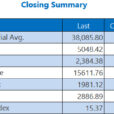What happens if you mix government and the digital revolution? The answer is Chapter 2 of the April 2018 IMF publication Fiscal Monitor, called “Digital Government.” The report offers some striking insights about access to digital technology in the global economy and how government may use this technology.
Access to digital services is rising fast in developing countries, especially in the form of mobile phones, which appears to be on its way to outstripping access to water, electricity, and secondary schools.

Of course, there are substantial portions of the world population not connected as yet, especially in Asia and Africa.

The focus of the IMF chapter is on how digital access might improve the basic functions of government taxes and spending. On the tax side, for example, taxes levied at the border on international trade, or value-added taxes, can function much more simply as records become digitized. Income taxes can be submitted electronically. The government can use electronic records to search for evidence of tax evasion and fraud.
On the spending side, many developing countries experience a situation in which those with the lowest income levels don’t receive government benefits to which they are entitled by law, either because they are disconnected from the government or because there is a “leakage” of government spending to others.The report cites evidence along these lines:
“[D]igitalizing government payments in developing countries could save roughly 1 percent of GDP, or about $220 billion to $320 billion in value each year. This is equivalent to 1.5 percent of the value of all government payment transactions. Of this total, roughly half would accrue directly to governments and help improve fiscal balances, reduce debt, or finance priority expenditures, and the remainder would benefit individuals and firms as government spending would reach its intended targets (Figure 2.3.1). These estimates may underestimate the value of going from cash to digital because they exclude potentially significant benefits from improvements in public service delivery, including more widespread use of digital finance in the private sector and the reduction of the informal sector.”















No Comments